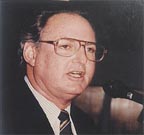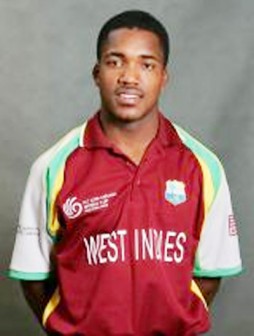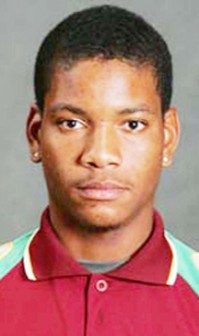ACCORDING to manager Wes Hall’s report, Brian Lara complained that “cricket has ruined my life” after walking out on the West Indies team after the fourth Test during its 1995 tour of England.
It was a comment based on the weight of high expectations the incomparable left-hander, already holder of Test and first-class record scores, took with him every time he went to the crease for West Indies.
It required the intervention of Peter Short, West Indies Cricket Board (WICB) president at the time, to convince him to return. At a meeting at the Castle Hotel in Taunton, Short told Lara his reputation was based on cricket; it would be the greatest mistake of his young life if he were now to throw it all down the drain.

Lara returned to reel off two hundreds – 152 and 179 – in the last two Tests of the drawn series. Other fluctuations followed in a mercurial career that lasted 16 years; they did not prevent him creating a legacy as the most unforgettably entertaining batsman of his generation.
Unspecified “personal reasons” are all that Darren Bravo, Lara’s young cousin and unmistakable replica, now presents for declining selection on the imminent tour of South Africa; it was the same when he cut short his tour of New Zealand last January.
We can only conjecture what they might be; the same as Lara’s in 1995 would be a fair guess.

The family connection, the recognizable familiarity of his left-handed strokeplay and a heady start to his Test career which, uncannily, identically matched Lara’s after 12 Tests (941 runs, average 47.05) triggered such hopes that Steve Waugh, the former Australia captain, identified Bravo as “world cricket’s next superstar, no doubt”.
Such heady optimism has faltered in the interim.
Bravo’s average of 43.60 after 32 Tests is better than any contemporary West Indian except the perennial Shivnarine Chanderpaul; his match-saving 218 against New Zealand in Dunedin was as recently as last December, his 109, his first hundred in the Caribbean, was in June, fittingly at the Queen’s Park Oval, his ground for club and country.
Yet to those who recognize his potential, probably Bravo himself among them, these stats are short of the mark.
The scenario is the same with Keiron Powell, another tall, elegant, clearly gifted left-hander whose 40 Test innings have yielded a modest average of 27.48.
A hundred in each innings of a Test in Bangladesh puts him among an elite company of West Indians who have achieved the feat (Headley twice. Weekes, Walcott twice, Sobers, Kanhai, Rowe, Greenidge, Lara). His problem has been inconsistency.
He has played no cricket since he was dropped after the first Test against New Zealand in Kingston in mid-June. The Caribbean Premier League (IPL), the home series against Bangladesh and an ‘A’ team tour of Sri Lanka have all passed without him. Neither is he involved in the current West

Indies Cricket Board’s new-look Professional Cricket League.
These are worrying developments at a time when West Indies cricket has enough to worry about as it is.
Bravo is 25, Powell 24. They represent the future of West Indies batting, at present palpably short of such potentially accomplished players.
At this time of personal disquiet, both can count of the support and advice of a strong family network.
For Bravo, brother Dwayne, the West Indies One-Day International captain, and uncle Lara can speak from experience; for Powell, father Carlisle, a leading cricket administrator in Nevis, and his wife have assiduously guided their son towards his goal to be a West Indies player.
Powell junior is taking a deliberate break from the game that has been his life. Powell senior says he won’t push him into coming back before he is ready; he is convinced that this period of indecision will pass as his son assures him his goal remains playing 100 Tests for West Indies.
In the meantime, the West Indies have to proceed on a succession of tough missions over the next seven months (Tests and ODIs in South Africa and at home against England and Australia along with the World Cup in Australia and New Zealand) without two of its finest young batsmen, both seemingly brooding over their immediate futures.





